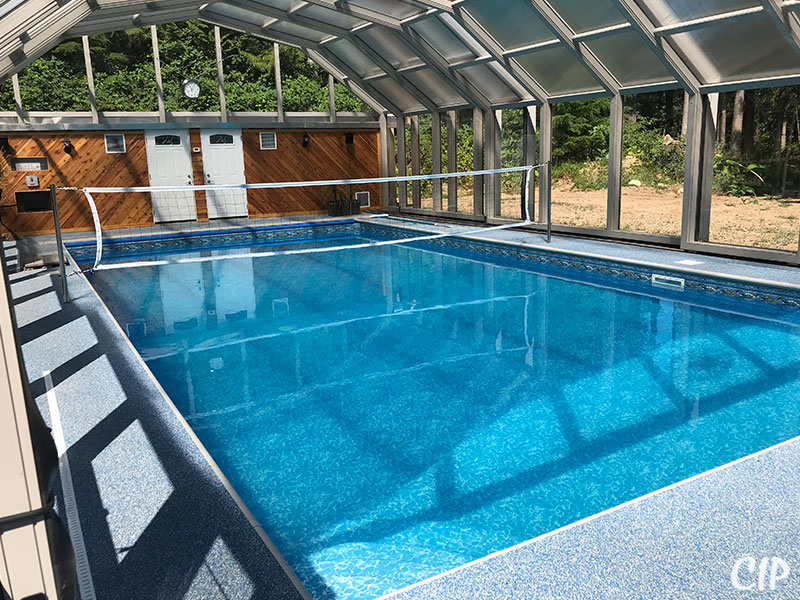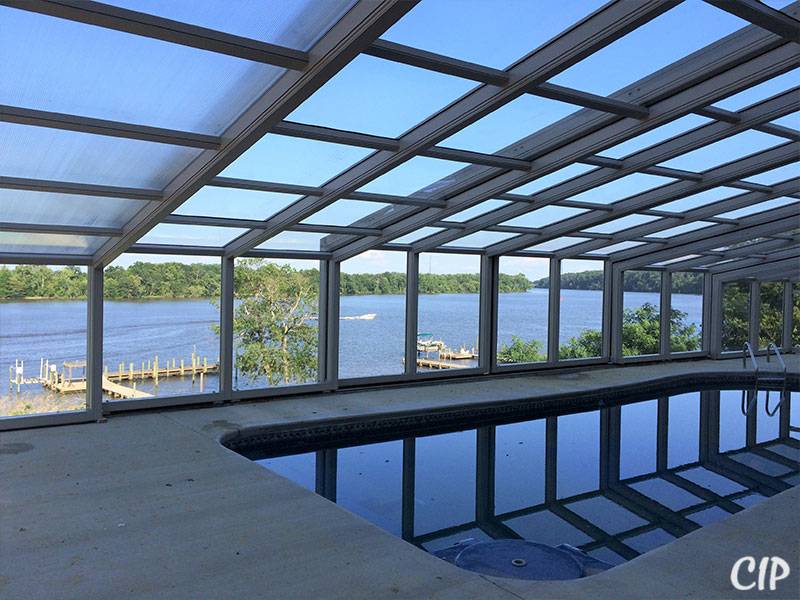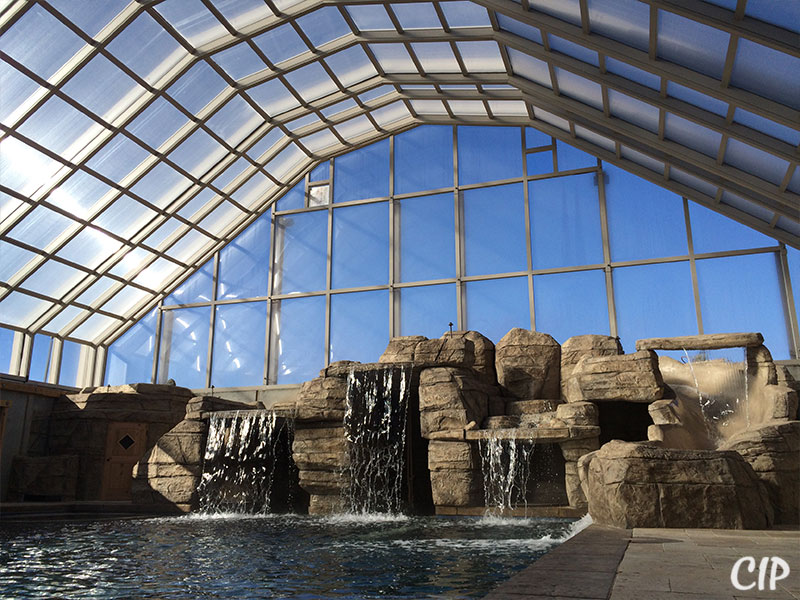Deciding between an indoor and outdoor pool for your home is a significant decision that can affect not only your lifestyle but also your property value. While both indoor and outdoor pools offer the opportunity to relax, exercise, and entertain, they each have unique advantages and drawbacks. Factors such as climate, budget, maintenance, and personal preferences play a role in determining which pool type is the best fit for your home.
In this article, we will explore the key differences between outdoor pools and indoor pools, including the benefits and challenges of each. Whether you’re considering a new build or adding an indoor-outdoor swimming pool to your residential property, understanding these factors will help you make an informed choice.
Year-Round Usability
One of the most obvious differences between indoor and outdoor pools is the ability to use them throughout the year.
– Indoor Pools: Indoor pools provide year-round access, regardless of the weather conditions outside. You can swim in an indoor pool in any season, even during the coldest months, without worrying about temperature drops, rain, or other environmental factors. For homeowners who live in colder climates or areas with harsh weather, an indoor pool offers a consistent, comfortable swimming environment all year long.
– Outdoor Pools: Outdoor pools, on the other hand, are typically used seasonally, depending on the local climate. While an outdoor pool is perfect for summer swimming, it may be closed or covered during the fall and winter. For those who live in warmer climates, an outdoor pool can be enjoyed for longer periods throughout the year, making it a popular choice for leisure and social activities.
Ultimately, if year-round swimming is a priority for you, an indoor pool might be the better choice. However, for those who prefer the feeling of swimming outdoors and enjoying the sun, an outdoor pool is an appealing option.

Maintenance Requirements
Maintenance is another major consideration when deciding between an indoor and outdoor pool.
– Outdoor Pools: Outdoor pools are exposed to the elements, which means they require more frequent maintenance. Debris such as leaves, dirt, insects, and pollen can easily enter the pool water, requiring regular cleaning and skimming. Outdoor pools are also affected by weather changes, meaning pool chemistry and water balance need to be monitored closely. Additionally, you may need to cover the pool when not in use or during harsh weather conditions to protect it from debris and damage.
– Indoor Pools: Indoor pools are shielded from environmental debris, meaning less cleaning is needed. Without exposure to the elements, indoor pools maintain more stable water chemistry, requiring less frequent adjustments to chemical levels. However, indoor pools do come with the challenge of humidity control. A good ventilation system is necessary to prevent moisture buildup, which can lead to mold or mildew problems in the pool area.
While outdoor pools may require more maintenance due to external factors, indoor pools demand attention to air quality and humidity management. Both pool types come with their own set of maintenance needs, but the specific challenges differ.
Cost Considerations
The cost of installing and maintaining an indoor or outdoor pool can vary significantly depending on factors such as size, materials, and additional features.
– Outdoor Pools: In general, outdoor pools tend to be less expensive to install than indoor pools. There’s no need for a building structure to house the pool, which reduces construction costs. However, ongoing maintenance for an outdoor pool—such as cleaning, heating, and chemical treatments—can add up over time. Covering or closing the pool during colder months also requires seasonal maintenance.
– Indoor Pools: Indoor pools are typically more expensive to install because they require a dedicated structure, complete with proper insulation, ventilation, and possibly heating systems. These additional features drive up the cost of an indoor pool. However, once installed, an indoor pool may be easier to maintain since it is not exposed to outside elements. The long-term savings on heating, chemical treatments, and cleaning can offset the initial higher installation cost.
If budget is a significant concern, an outdoor pool may seem like the more affordable option. However, the long-term savings associated with an indoor pool’s lower maintenance and consistent usability may make it worth the investment for those who prioritize year-round swimming.

Aesthetic Appeal and Integration with Outdoor Space
A pool is often a centerpiece of a home’s outdoor design, and its appearance can greatly influence the overall aesthetic of your property.
– Outdoor Pools: An outdoor pool enhances the natural beauty of your backyard and can be integrated seamlessly into landscaping designs. Outdoor pools offer open-air experiences, allowing you to enjoy the sun, fresh air, and surrounding environment. They’re ideal for pool parties, BBQs, and other social events. Additionally, outdoor pools offer more flexibility in terms of size, shape, and features like waterfalls, diving boards, or rock formations.
– Indoor Pools: Indoor pools, while lacking the natural outdoor setting, can be designed to fit within a luxurious, climate-controlled environment. Indoor pool rooms often feature skylights, large windows, or retractable roofs to bring in natural light and provide a connection to the outdoors. A covered pool offers privacy and a controlled environment, making it feel like a private oasis.
Both indoor and outdoor pools can be designed to enhance the overall aesthetic of a property, but outdoor pools offer more opportunities to integrate with nature and provide an open, expansive feel.
Privacy and Security
Privacy is another important consideration when deciding between an indoor and outdoor pool, especially for residential properties.
– Indoor Pools: An indoor pool offers complete privacy, as it’s located within your home or a private pool house. This allows you to swim without worrying about prying eyes from neighbors or passersby. Indoor pools also provide a secure environment, as access can be restricted to authorized individuals only, making it a safer option for families with young children or pets.
– Outdoor Pools: Outdoor pools are more exposed to the surrounding environment, which may raise privacy concerns for some homeowners. However, these concerns can be mitigated by installing fences, walls, or hedges around the pool area. Covered pools can offer additional privacy by shielding the pool from view, while still allowing for an open-air experience.
For homeowners who prioritize privacy and security, an indoor pool is the clear winner. Outdoor pools can still offer privacy with the right design, but they require additional measures to achieve the same level of seclusion as an indoor pool.

Health and Environmental Benefits
When it comes to health and environmental considerations, both indoor and outdoor pools have unique advantages.
– Outdoor Pools: Outdoor pools provide the opportunity to swim in the fresh air and soak up the sun, offering health benefits such as vitamin D production. Being outside also promotes a sense of relaxation and connection with nature. However, outdoor pools are subject to environmental factors such as fluctuating temperatures, which can make maintaining ideal swimming conditions more challenging.
– Indoor Pools: Indoor pools, while lacking direct exposure to sunlight, offer a controlled environment that allows for consistent swimming conditions, regardless of weather or time of day. With an indoor-outdoor swimming pool setup, you can still enjoy the benefits of fresh air and natural light when desired, thanks to retractable walls or roofs that combine the best of both worlds.
Both indoor and outdoor pools offer health benefits, but the choice depends on whether you prefer the natural outdoor experience or the comfort of a controlled, indoor environment.
Deciding between an indoor and outdoor pool depends on several factors, including climate, budget, privacy, and maintenance preferences. Indoor pools offer year-round usability, enhanced privacy, and lower exposure to environmental factors, but they come with higher installation costs. Outdoor pools, on the other hand, provide an open, natural swimming experience with more design flexibility and lower upfront costs, but they require more maintenance.
For homeowners seeking the best of both worlds, an indoor-outdoor pool residential setup or a covered pool could be the perfect solution, offering flexibility and the option to enjoy the pool in all weather conditions.
Ultimately, whether you choose an indoor or outdoor pool, each option brings its own unique benefits, enhancing your home’s value and your quality of life.

